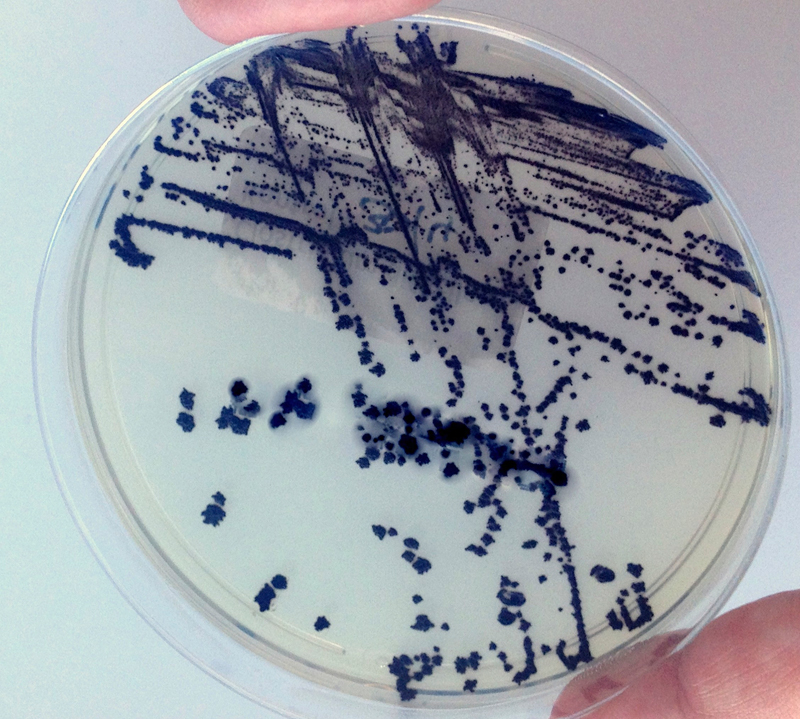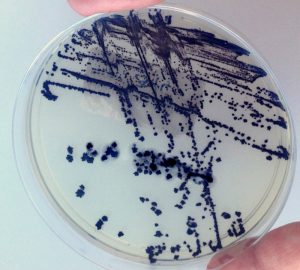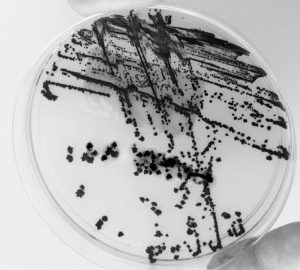
Dr. Daniel Paredes-Sabja: Más allá de la bacteria
Si bien hoy la ciencia cuenta con herramientas que permiten la detección temprana de la bacteria; las infecciones por Clostridium difficile se incrementan año a año y sus principales blancos de contagio son los hospitales y las personas enfermas o en tratamiento médico.

No obstante, uno de los mayores desafíos clínicos referentes a esta bacteria responden a la necesidad de eliminar los casos de recurrencia que afecta a los pacientes infectados con Clostridium difficile.
De hecho, según el Dr. Daniel Paredes-Sabja, académico e investigador de la Universidad Andrés Bello, “una vez terminado el cuadro clínico, las estadísticas dicen que tres de cada diez personas van a presentar un segundo episodio. De hecho, es muy probable que se desarrollen nuevas recaídas capaces de generar daños irreversibles en el intestino del paciente; e incluso, resulten en la muerte”.
La razón de estas recurrencias se encuentra en que la bacteria utiliza como medio de supervivencia la liberación de esporas, las que se esconden en el tejido epitelial y, una vez que la infección ha sido controlada por medio de un tratamiento, se liberan provocando causales de recurrencia.
“Estas esporas son metabólicamente inactivas, impermeables a cualquier antibiótico y no se ven afectadas por los ataques del sistema inmunológico. Estas características las hacen imposibles de combatir durante el cuadro clínico y sólo pueden eliminarse una vez que han creado una nueva recurrencia”, agrega el Dr. Paredes-Sabja.
De esta forma, el académico de la Universidad Andrés Bello junto a su equipo, conformado por alumnos de pre y posgrado de la misma casa de estudios, trabajan en un ambicioso proyecto, el cual busca identificar las moléculas de la espora y los receptores en las células, involucrados en la interacción.
“Si logramos conocer e inhibir el proceso por el cual la espora ingresa a las células del epitelio, podríamos disminuir e incluso eliminar los casos de recurrencia de la enfermedad”, finaliza el Dr. Daniel Paredes-Sabja.
Descargar PDF: Más allá de la bacteria
Beyond Bacteria
While current scientific technologies allow for the early detection of bacteria, infections of Clostridium difficile increase each year, with hospitals acting as a primary source of contagion, especially among sick individuals and patients.
 In addition to preventing initial infection, one of the greatest clinical challenges in treating this bacterium is eliminating the incidence of recurring infections.
In addition to preventing initial infection, one of the greatest clinical challenges in treating this bacterium is eliminating the incidence of recurring infections.
According to Dr. Daniel Paredes-Sabja, investigator from the Department of Biological Sciences at the Universidad Andrés Bello, “Even after clinical symptoms are no longer present, statistical data indicate that three of every ten patients will present a second infection. In fact, it is highly probable that these patients will
have relapses capable of causing irreversible intestinal damage or even death”.
The reason for these relapses is due to the survival mechanism employed by C. difficile, where liberated spores hide in the epithelium. Once clinical symptoms have been controlled through treatment, these spores are released and cause a recurrent infection.
“These spores are metabolically inactive, impermeable to any antibiotic, and are unaffected by attacks from the immune system. These characteristics make it impossible to combat these spores during clinical presentation of the disease, and they can only be eliminated once relapse has occurred,” adds Dr. Paredes-Sabja.
Considering this situation, Dr. Paredes-Sabja, together with a team of pre- and post-graduate students from UNAB, are working on an ambitious project to identify the molecular components involved in the interaction between the spore and the host cells.
“If we are able to identify and inhibit the process by which C. difficile spores enter epithelial cells, we can decrease or even eliminate recurrences of this bacterial infection,” emphasizes Dr. Daniel Paredes-Sabja.
Download PDF: Beyond Bacteria
